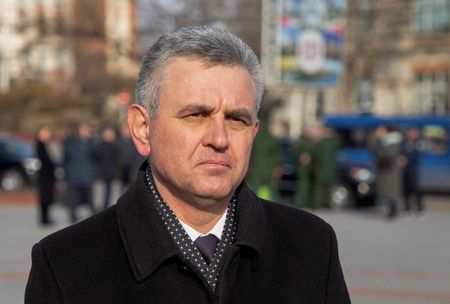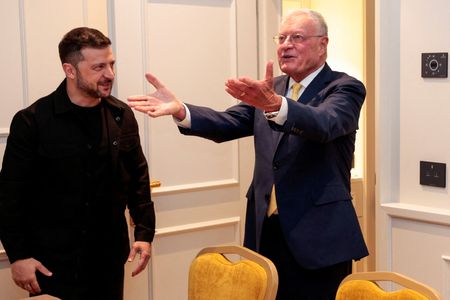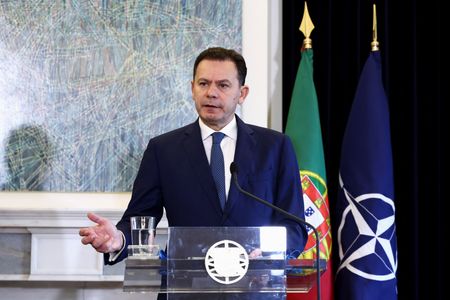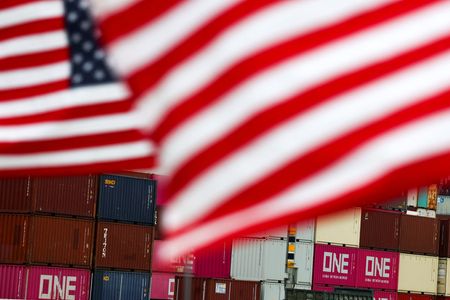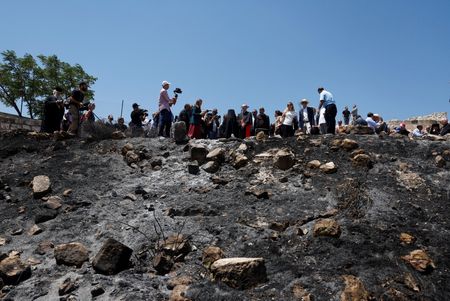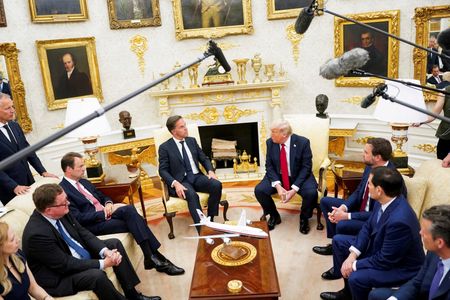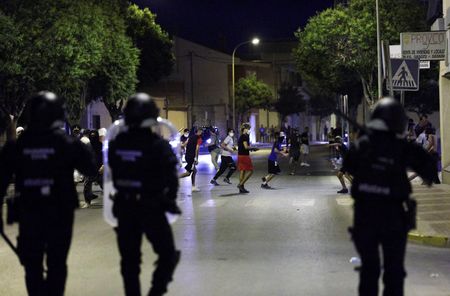By Alexander Tanas
CHISINAU (Reuters) -The leader of Moldova’s breakaway region of Transdniestria has travelled to Moscow for talks to resolve an energy crisis following the suspension of Russian gas deliveries, Transdniestria’s news agency reported on Tuesday.
Transdniestria has suffered widespread power cuts since Jan. 1 when Russia’s Gazprom suspended gas exports to the region, citing an unpaid Moldovan debt of $709 million that Chisinau does not recognise as valid.
Moscow blames the suspension of gas supplies on Moldova and Ukraine, which refused to extend a five-year gas transit deal that expired on Dec. 31 on the grounds that the proceeds help fund Russia’s invasion.
Moldova says Moscow could use an alternative route to continue supplying Transdniestria, which was receiving gas via Ukraine.
Transdniestria’s separatist leader Vadim Krasnoselsky held talks to overcome the energy crisis, his press secretary Denis Podgorny was quoted as saying by Novosti Pridnestrovya agency.
He gave no details, and Russian authorities made no comment.
SANDU SAYS MOSCOW DECIDES FOR SEPARATISTS
Moldova’s pro-Western President Maia Sandu said she was aware of the visit, adding: “We want the people in the Transdniestrian region… to have electricity, heat, and water as soon as possible.”
“Tiraspol’s refusal to accept help from Moldova is not its (refusal) but the Kremlin’s,” Sandu said, reiterating Chisinau’s view that Transdniestria acts only on Moscow’s orders. Tiraspol is the separatist region’s capital.
Moldovan political analyst Vitalie Andrievschi told Reuters that Krasnoselsky’s talks in Moscow could simply produce the same position that a resumption of Russian gas supplies depended on Moldova paying arrears.
“Or Russia could consider Transdniestria’s position and say it will start shipments at this or that date through the Balkan corridor (Turkey, Bulgaria, Romania), without Moldova paying off the arrears,” he said.
Moldovan officials say they have offered Transdniestria help with buying gas on external markets and securing coal supplies from Ukraine. The separatist authorities say Chisinau has made no real proposals.
Sandu said she believed the energy crisis had been artificially stoked, arguing that Russia had alternative routes to continue supplying contracted natural gas. Russia’s only goal is to destabilise the situation in Moldova, she added.
Sandu, who won a second presidential term in a closely fought election late last year, aims to take Moldova into the European Union.
Moldova’s foreign ministry, meanwhile, denounced as “unacceptable interference” comments by a senior Kremlin aide, Nikolai Patrushev, who blamed Chisinau authorities for the energy crisis and said they should “acknowledge their mistakes”.
“I cannot rule out that Chisinau’s aggressive anti-Russian policy will lead to Moldova either being made part of another country or ceasing to exist,” Patrushev told the daily Kosomolskaya Pravda.
He said the same fate could also befall Ukraine, citing the long-held Russian position that Kyiv’s policies were guided by what Moscow calls “neo-Nazi” principles.
(Reporting by Alexander Tanas, writing by Yuliia Dysa and Ron PopeskiEditing by Gareth Jones and Deepa Babington)

